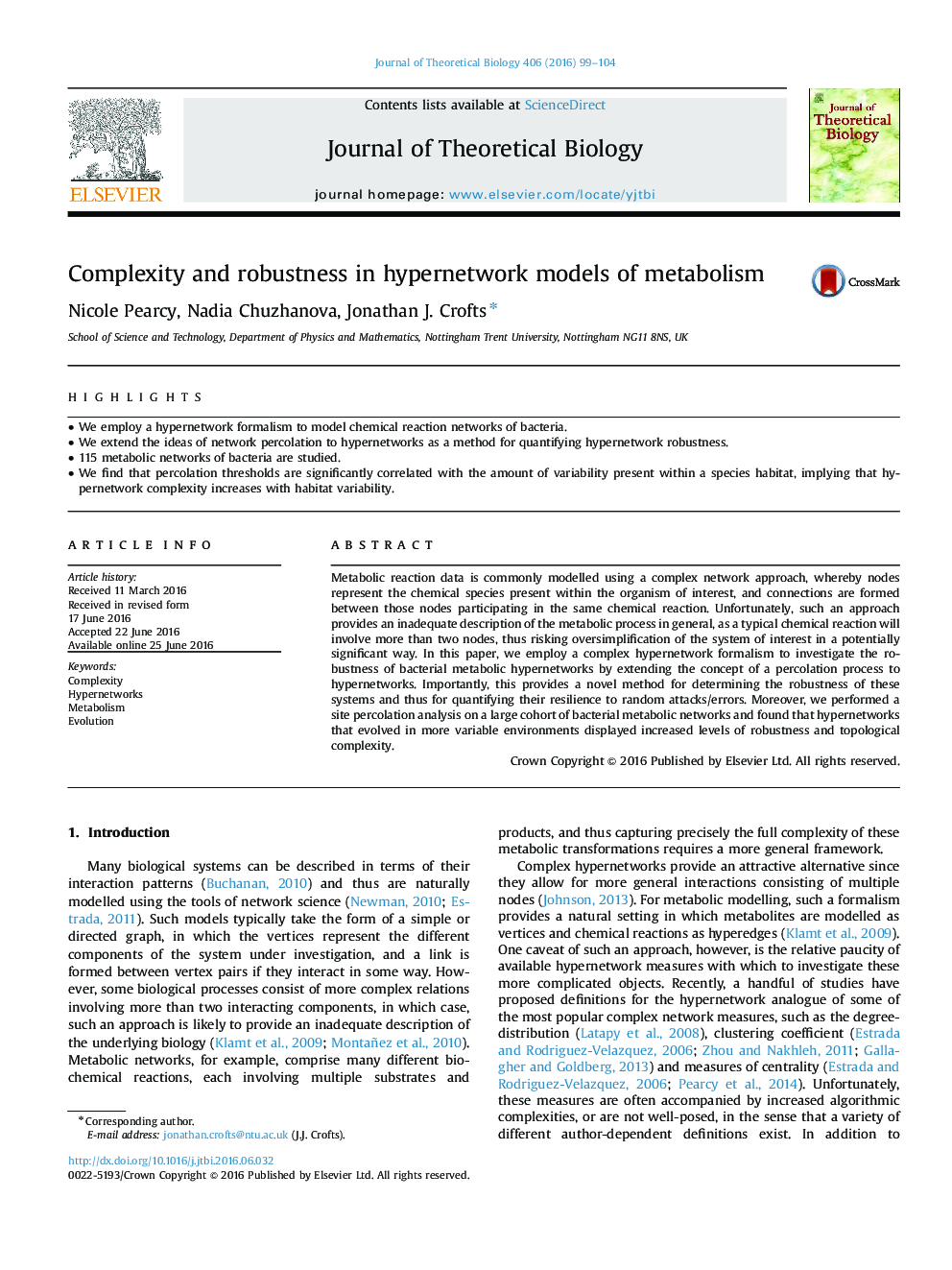| Article ID | Journal | Published Year | Pages | File Type |
|---|---|---|---|---|
| 6369087 | Journal of Theoretical Biology | 2016 | 6 Pages |
Abstract
Metabolic reaction data is commonly modelled using a complex network approach, whereby nodes represent the chemical species present within the organism of interest, and connections are formed between those nodes participating in the same chemical reaction. Unfortunately, such an approach provides an inadequate description of the metabolic process in general, as a typical chemical reaction will involve more than two nodes, thus risking oversimplification of the system of interest in a potentially significant way. In this paper, we employ a complex hypernetwork formalism to investigate the robustness of bacterial metabolic hypernetworks by extending the concept of a percolation process to hypernetworks. Importantly, this provides a novel method for determining the robustness of these systems and thus for quantifying their resilience to random attacks/errors. Moreover, we performed a site percolation analysis on a large cohort of bacterial metabolic networks and found that hypernetworks that evolved in more variable environments displayed increased levels of robustness and topological complexity.
Keywords
Related Topics
Life Sciences
Agricultural and Biological Sciences
Agricultural and Biological Sciences (General)
Authors
Nicole Pearcy, Nadia Chuzhanova, Jonathan J. Crofts,
